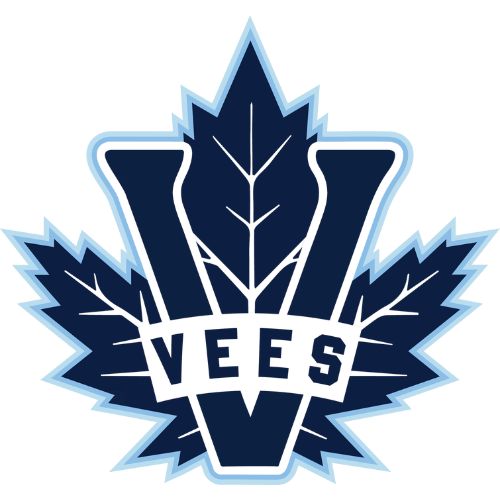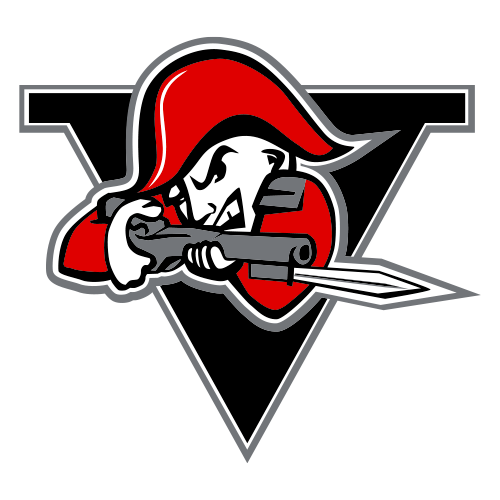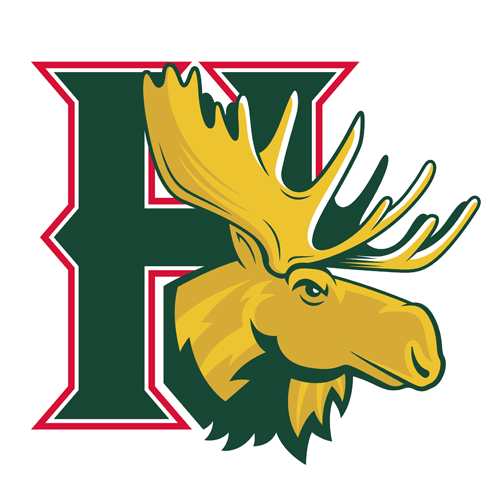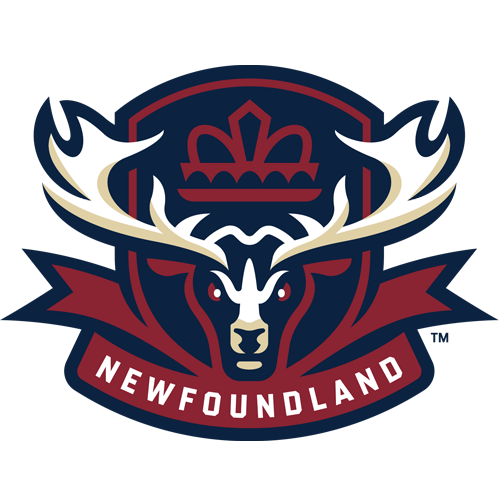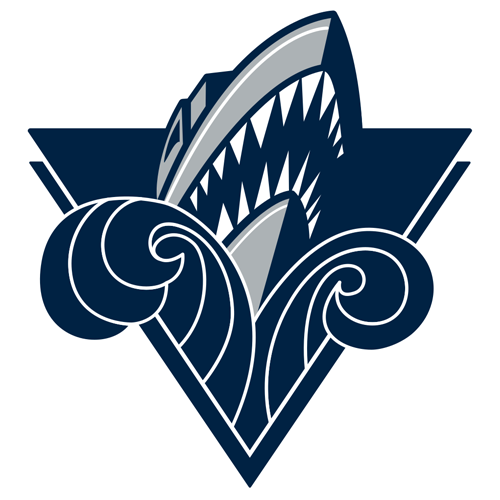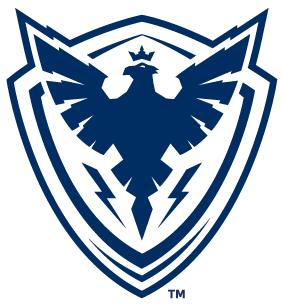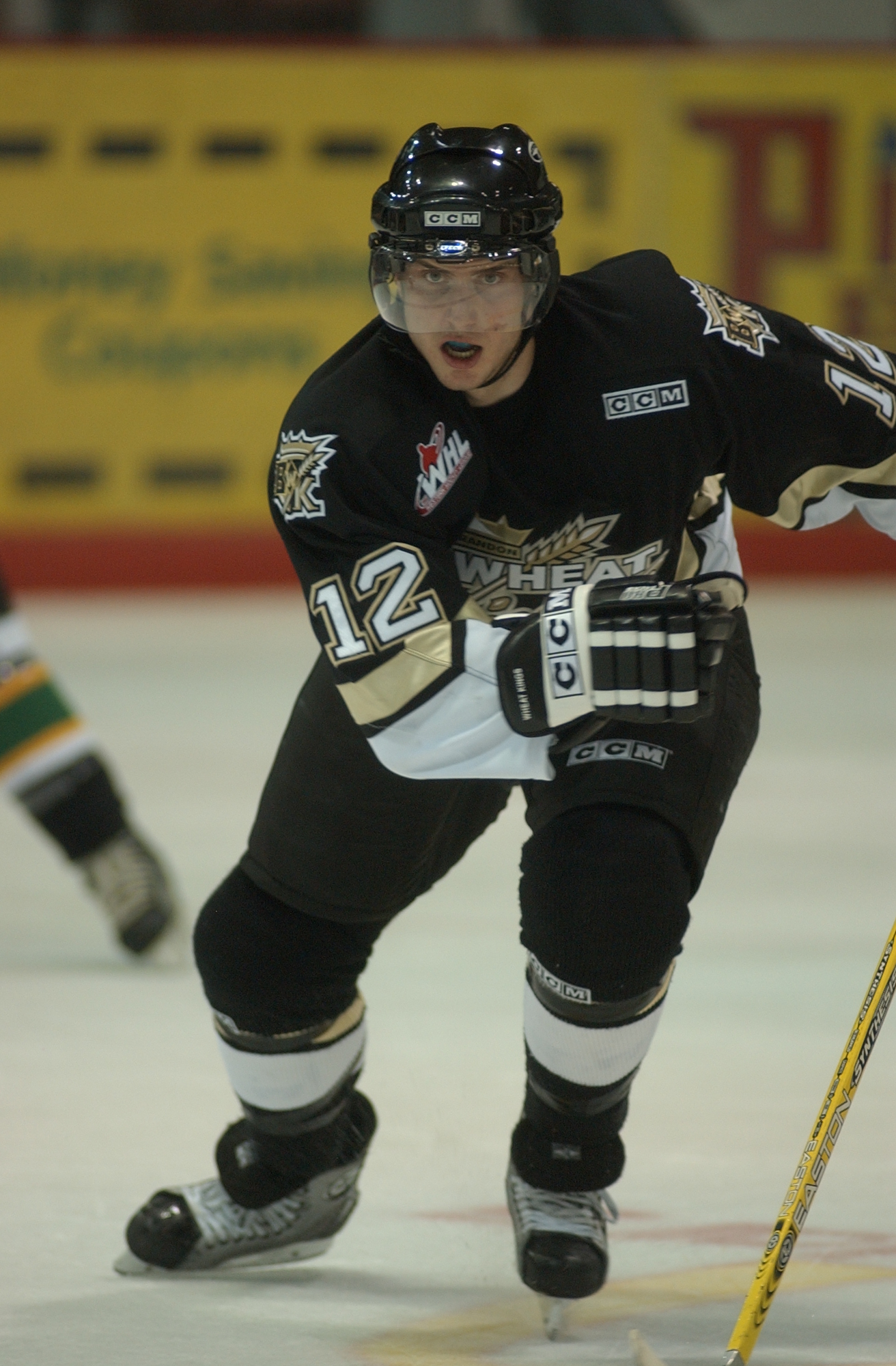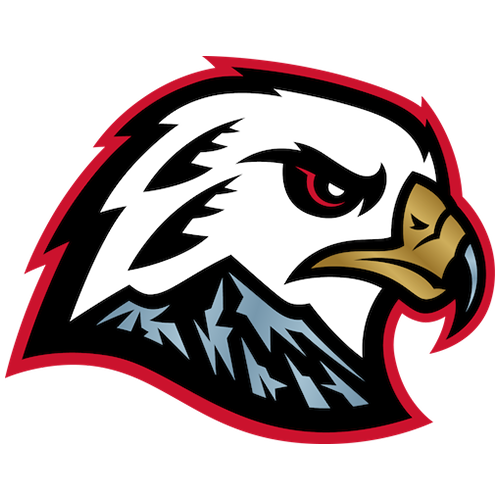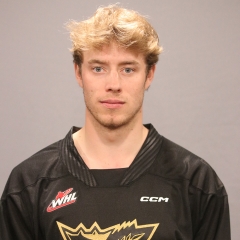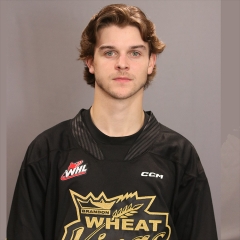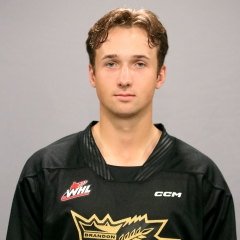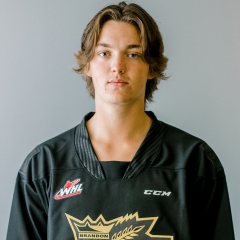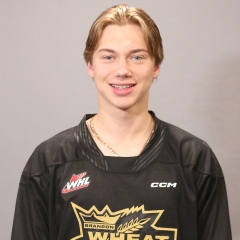Brandon experience exactly what Dyck hoped for
Courtesy of Perry Bergson, The Brandon Sun
When Tyler Dyck was traded to the Brandon Wheat Kings on Oct. 8, 2002, he ended up with the Western Hockey League experience he always imagined.
Dyck was born in Calgary but moved to Regina when he was about five and then to Swift Current when he was eight. They moved back to Calgary when he was 12.

To him, the WHL was the East Division.
“Growing up in Swift Current, to me the WHL was the Saskatoon Blades, Brandon Wheat Kings, P.A. Raiders,” the 37-year-old said. “A lot of the teams out there, although I knew about them from playing in the league, it was just a different kind of experience when you’re in the U.S.
“A WHL game in Swift Current is a really big deal, and the same in Brandon. That’s the thing to do. And in the U.S., there are a lot of other things to do so you don’t get as many fans. It’s just a totally different experience.”
He was first on skates before he can remember, at about age three or four. In Regina, they lived almost across the street from an outdoor rink.
“Every day you could, when you got home, if you had homework, you got it done and headed out to the outdoor rink until you got yelled at to come home,” Dyck said. “In Swift Current we didn’t have the rink but it was buddies nearby playing street hockey every week night and as much of the weekend as you could.”
His older brother Randall also played, suiting up for 26 games with the Broncos, Medicine Hat Tigers and Regina Pats but spending most of his career in Junior A.
“He probably got me most interested in junior hockey because he was three or four years older than me,” Dyck said. “Being in Swift Current, we had Broncos tickets so that was my intro into watching the WHL but he played some junior hockey, mostly out in the B.C. Junior League and a little bit in Medicine Hat and Swift Current. That was where I got my first flavour of ‘Maybe this is something I want to do.’”
The brothers were certainly supported by parents Eric and Liliane, although Tyler said he eventually had to set his father straight on one important fact.
“It was getting us to the rink, tying your skates when you’re really young, introducing you to it,” Dyck said. “My dad is a left shot, and he kept buying me left-handed sticks. My brother was a right shot and I was always using his and my dad didn’t know.”
They eventually got that settled, although with both brothers playing competitive hockey, it remained a busy family. In Swift Current, Randall was playing on the bantam prep team while Tyler was suiting up for the peewees.

“It was one parent going with one kid in one direction on a weekend, and the other parent going with the other kid in another direction,” Dyck said, adding the leagues involved nearby Saskatchewan communities. “Every weekend you were either playing two games at home or travelling somewhere on a bus. It was a lot of time for parents to put in.”
Dyck, who was coached by his father when he was younger, was always a forward, usually playing down the middle.
While Regina is also a WHL city, he was a little older in Swift Current and took greater notice of the league for the first time. They became early heroes, something reflected when Dyck had a chance to skate with Broncos veteran Chris Szysky many years later.
“I had to go across the room and shake his hand and tell him ‘You were a childhood idol of mine,’” Dyck said.
After winning peewee provincials in Swift Current with a group of players that later triumphed at westerns in bantam, the Dyck family moved back to Calgary for his major peewee season.
He played well enough that two years later he was selected in the third round of the 1998 bantam draft, going 39th overall to the Edmonton Ice.
“I was officially drafted to the Edmonton Ice as a Calgary guy,” Dyck said with a chuckle. “It was all fine with me but it’s not ideal as a Calgary-born person. That summer (the Ice) moved to Cranbrook.”
Dyck played four games with the Kootenay Ice as a 15-year-old during the 1998-99 season, and made the club as a 16-year-old the following year.
At the time, Cranbrook schools were on a quarter system, so students took two classes for a certain period of time. It wasn’t ideal on a hockey player’s schedule.
“If you missed a week, you missed a lot,” Dyck said. “I actually made the decision, and maybe this was ahead of the time and is more prominent now, I did virtual school out of a school in Okotoks. They set me up with a computer and a scanner. The benefits of that were that I got to get school done in the morning and if there was a breakfast club check-in with the older guys, I got to do that or if there was a workout I could do that because I could get the school done on my own time.
“It provided some flexibility, maybe with the drawback that I didn’t get to meet local people of my own age but you’re hanging out with your teammates anyway.”
He said it was close enough that his parents were able to make the four-hour drive to see him play.
On a team filled with veterans such as Mike Green, Jarrett Stoll, Jaroslav Svoboda, Zdenek Blatny and Jason Jaffray that would go on to win the Memorial Cup, Dyck found ice time hard to come by, earning two points in 40 games.

In the 2000-01 season, he had six points in 42 games when Ice general manager Bob Tory sent him to the Tri-City Americans for forward Mike Lee. Dyck suspected the move was coming because Kootenay had another great team — it won two league titles in three years — and he thought it might be loading up.
He also knew Tory wanted him to have a chance to play somewhere.
“Getting traded was strange,” Dyck said. “You’re packing up and out of town in a few hours and you’re on the road to a place you’ve never been. I had fantastic billets (in Kennewick, Wash.) so that made it a lot easier. The thing about the hockey world is that it’s filled with good guys. They take you in and you become a member of the team and you have a bunch of buddies on the day you arrive.”
Dyck turned the corner in his 18-year-old season with the Americans, contributing 13 goals and 22 assists in 44 games with 112 penalty minutes. Unfortunately, he broke his left ankle in practice just after Christmas, costing him more than two months.
He still has plates and screws in the ankle, although there are no residual effects.
Dyck returned to Kennewick for the 2002-03 season as a 19-year-old, but after a 1-4-0-0 start to the season, he was shipped to Brandon with a fourth-round pick in 2004 (they picked Allan Gudmundson of Selkirk) for overager Colin McRae.
Interestingly, it was Tory who traded him again because the veteran hockey man had left Kootenay for Tri-City.
“That one I definitely didn’t see coming,” Dyck said of the deal. “I think I got back from Anaheim’s camp that year and as a team we were off to a slow start with a record of 1-4. I guess you kind of have a feeling something is coming and then you find out it’s you when you get to practice and there’s no jersey in your stall.”
He said he quickly checked the standings, saw Brandon was playing well and jumped in his car. Dyck joined a Brandon club built around forwards Ryan Craig, Jordin Tootoo, Tim Konsorada, Lance Monych and Eric Fehr.
“The room had a feeling,” Dyck said. “I don’t know if that makes sense but it starts from the top with Kelly (McCrimmon) and works it way down to the coaches and leaders and the players and the rookies. Not to say other dressing rooms didn’t have it but it just a real collaborative we’re-all-in-this-together type feeling, even on day one and two.”
Dyck said it helped that he had the trade experience before, and also that he knew Wheat Kings assistant coach Mark Howell, who had previously coached at the under-18 level in Calgary.
He also lucked out with his billets, Margaret and Marty Woronchuck, who quickly made him feel at home.
“Having a nice family atmosphere to come home to made it a really nice arrival in Brandon,” Dyck said. “I had good billets everywhere but 18 years later I was talking with Margaret over the phone at Christmas.”

Dyck chuckled when he said she once told him he ate enough perogies to be an honorary Ukrainian.
On the ice, Dyck settled in fairly quickly.
“The room was welcoming,” Dyck said. “It was a deep team. In Tri-City you play them once a year so I didn’t know a lot of the guys in detail — not like Spokane, who you play half a dozen times a year and know a lot better — so I didn’t even know a lot of the players even by name … You were part of the team as soon as you showed up in the room.”
He skated with Craig and Tootoo off the hop, although head coach Dean Clark liked trying different line combinations to see who would get hot.
Dyck remembered Tootoo giving him some advice before their first game together.
“He said if you get the puck early, just dump it into my corner because that’s how we like to start the game,” Dyck said. “He exploded into a lot of players. Those were some massive hits. It was neat to play with him.”
Another thing stood out about Tootoo, and it played out on the road night after night.
“We would play somewhere and after the game there would be a lineup of people waiting to get his autograph,” Dyck said. “He would sit there as a 19-year-old and sign all the autographs. Just the patience to do that was pretty impressive, and it was something I learned from Jordin. If anybody was waiting outside for my autograph, I wasn’t going to pass them by.
“… It wasn’t this pain in the butt. You should feel honoured about that.
“It doesn’t happen to everybody, and it’s a privilege to play. If a kid wants to spend his time watching you and then waiting for an autograph after, you should be more than happy to hang around.”
Dyck said he remembers standing outside the Swift Current dressing room when he was a little guy, waiting for the Broncos to leave so he could get their autographs.
Craig also stood out as one of the best leaders Dyck ever played with during his career.
“He was the liaison between the coach and the players but at the same time if you had something to talk about, you could talk to him and it wasn’t going anywhere,” Dyck said. “There was just an instant respect and trust. He was a calming influence and the example setter.”

There was a great sense of expectation on players, who he added did whatever they could for each other as much as they did for the coaching staff.
The 2002-03 club went 43-17-9-3, finishing first in the East Division and third overall in the league.
“We had a solid four lines with even young guys contributing,” Dyck said. “We had top-end talent, good goaltending — (Rob) McVicar was the goalie and Geoff McIntosh so we had a solid one-two punch in net. It was just the culture of being a Brandon Wheat King … There was an expectation that this is how we’re going to play and we’re going to win.”
One way that was reflected was in the fact they only lost seven road games in the regular season, while winning 22 and tying seven.
“There was an expectation that we’re going to be ready to play, we’re going to win and then we’re going to throw our bags on the bus and go home,” Dyck said.
He responded with a career-high 62 points, with all but one of them coming in 63 games in Brandon.
After beating Regina and Medicine Hat, they fell in five games to the Red Deer Rebels in the Eastern Conference final.
Dyck returned for the 2003-04 season to a very different team, which had graduated many of its top veterans, and in a very different situation as one of four potential overagers.
Along with McIntosh and defencemen Reagan Leslie and Brett Dickie, Dyck found himself in a four-way battle for three spots that was ultimately solved when Dickie was sent to the Prince George Cougars on Sept. 22, 2003.
“As the only forward I knew there was maybe a bigger chance but I didn’t take it for granted given the quality of all four guys,” Dyck said. “Back in my first year of peewee, I played with Brett Dickie so I knew Brett for a long time. We didn’t keep in touch regularly but I would see him here and there. I certainly wasn’t happy to see him get traded but on the flip end of that was a guy who was happy he was going to stay.”
Dyck was added to the team’s leadership group as an alternate captain to Konsorada. He said it was an honour, although with the graduation of Craig and former alternate captain Brett Thurston, they had awfully big shoes to fill.
“You weren’t going to be those guys so you had to continue the trend in your own way,” Dyck said.
He certainly led on the ice, ending up second in scoring behind the team’s 17-year-old star Eric Fehr. Dyck set career highs in every category except assists with 72 games played, 37 goals, 72 points and 115 penalty minutes.

The team fell to 28-32-9-3, finishing third in the East Division during a tumultuous decision that saw the club trade for Regina’s star goalie Josh Harding and fire head coach Mike Kelly on March 1. McCrimmon stepped behind the bench and led the club to a six-game winning streak as they entered the playoffs.
The Wheat Kings beat the Raiders 4-2 in the conference quarterfinals before falling in five games to the eventual league champion Tigers in five games a series later.
Dyck’s junior career ended with a 4-1 loss in Medicine Hat on April 9, 2004.
“Even when you know it’s coming, you hope it doesn’t,” Dyck said. “Nothing against the other two stops, but I would have loved to have played five years in Brandon, just the way it felt and growing up partially a Saskatchewan guy. The 2000 WHL championship was fantastic as well but I wish it could have lasted longer. It was hard leaving the billets’ house, it was hard leaving the rink the last time.”
For the first time, he wasn’t checking the roster to see who would be back next year.
He was invited to a Calgary Flames camp that summer — earlier in his career he attended camps with the Anaheim Ducks and Washington Capitals — and had pro opportunities. Instead he chose to attend St. Francis Xavier University in Antigonish, N.S.
He said when he went unselected through two National Hockey League drafts, that gave him some pause in regard to his long-term prospects in the game because it wouldn’t be a short, easy ride to the NHL. But even into his overage year, his priority remained pro hockey.
Midway through the season, however, with the thought he had to start applying to schools early if he wanted to go, he shifted his focus. He also didn’t want to burn his scholarship money by playing pro.
“They have to want you enough to put money in the bank to pay for school if you’re going to give up the school,” Dyck said, who had very good grades and attracted a lot of interest from universities across Canada.
On top of all that, his then girlfriend and eventual wife Meagan was heading to St. FX to take nursing, so when that very successful program contacted him, it was an easy decision.
“It was kind of a flashing arrow ‘Go here,’” Dyck said with a chuckle.
He spent three seasons with the X-Men from 2004 to 2007, earning a berth in nationals in his final season as he followed in his father’s footsteps by studying engineering. Dyck returned to Brandon after his first year of university, working as a trainer for Jim Frederickson at Frederickson Performance Centre.
Incredibly, Meagan tried out and made the hockey team despite growing up only playing ringette. She also enjoyed a successful three-year university hockey career with the X-Women.

At the time, the other Maritime schools funnelled engineering students to Halifax’s Dalhousie University, and he was the last player who was allowed to transfer to the Tigers without sitting out a year.
“A neat little wrinkle on that was that I actually had the option to go to Dalhousie and continue playing for St. FX,” Dyck said. “Me and the coach had the conversation but it was ‘How does this even work?’”
After two seasons with the Tigers to wrap up his five-year university career, he graduated at the top of his class with his bachelor in engineering in 2009. The couple moved back to Calgary just in time for the recession that hit Alberta oilfields.
He did odd jobs until he landed a job in the field of forensic engineering with SAMAC Engineering Ltd., a Calgary company that has since been purchased and renamed.
Dyck served as a collision reconstructionist, analyzing physical and digital evidence to uncover what happened during traffic accidents through everything from measuring tire marks to examining police reports to interpreting black box data.
“It’s a niche industry,” Dyck said. “I didn’t know it existed when I graduated.”
After a decade in the industry and investigating more than 500 crashes, he eventually decided he wanted to try something new.
“It was time for a new challenge,” Dyck said. “I didn’t necessarily want to do this same thing for the next 30 years. What else is out there?”
He looked at a number of things, and after reaching out to McCrimmon — who took his MBA in business while Dyck was a Wheat King — Dyck enrolled in the University of Calgary’s Haskayne School of Business. He was officially welcomed into the MBA program after completing the entrance exam in December 2018.
He is 85 per cent done, with three classes and four months left in the grad program.
He and Meagan, who is now a nurse, married in 2008, and live with their one-eyed, 13-year-old Boston Terrier/French Bulldog mix, Tucker.
Dyck took 18 months off skates as he launched his new career in 2009, and then began to play in a local senior league. But with the games late at night and work beginning early in the morning, Dyck scaled that back and now skates only a few times a winter.
“The job just becomes more important than hanging out a rink until midnight,” Dyck said.
While the game doesn’t maintain the grip on him it once did, the lessons he learned in hockey certainly remain important to him.
He said the accountability he learned as a player will help him with his eventual transition into the financial services industry. The math and finance skills are a requirement, but his hockey life provided a nice set of complementary skills.
“It’s accountability, being able to collaborate in a successful team, leadership, and you talk about getting traded a couple of times, finding your place and figuring out where you fit and then contributing to the success of the team within that role,” Dyck said. “It’s doing things the right ways.”
He said it’s also attitudes like earning what you are given instead of simply expecting them.
Dyck said the sense of a group working toward a common goal isn’t easily duplicated outside the game.
“That’s what you miss you the most about playing hockey,” Dyck said. “I can think back and there are lots of good things that happened on the ice but it’s getting together with the guys after a hard-fought win that you miss the most.”
But the game ultimately meant a lot more to him than what happened with his buddies on the ice and in the dressing room.
The Calgarian, who was last in Brandon for the Memorial Cup in 2010, now recognizes the impact people such as McCrimmon, Tory, Craig and his billets had on him.
“You pick things up as you go along and maybe you don’t realize it when you’re 16 or 17,” Dyck said, noting how much he enjoyed the culture of the team in Brandon. “Seventeen years later, that’s the kind of atmosphere I’m looking to work in, that good group of people with a solid culture with respect and accountability and good leadership. Maybe that’s what we’re drawn to ultimately as hockey players but those are things a lot of businesses are looking for and trying to develop themselves.”
There was a long list of things Dyck liked about playing in Brandon. Many relate to that experience as an East Division aficionado growing up.
A big part of it was simply being in a smaller city.
“It’s so easy to walk or take a quick ride over to a teammate’s house and hang out before or after practice,” Dyck said. “I loved the knowledgable fans. That always makes it fun. I loved the leadership from the top down, starting with McCrimmon and the coaches and the older players before I was the oldest, which felt weird.
“It didn’t take long to go from being a 16 year old to a 20 year old. I loved the home with the Woronchuks. I can’t think of a negative thing.
“I thoroughly enjoyed being a Brandon Wheat King and being in Brandon.”









